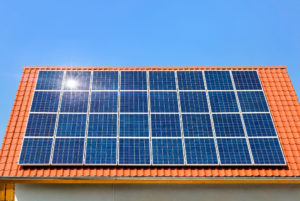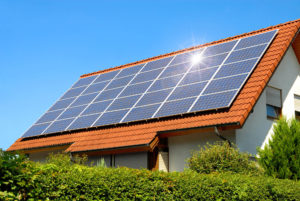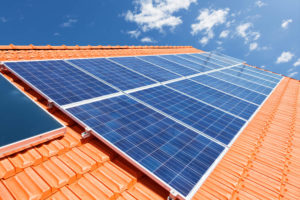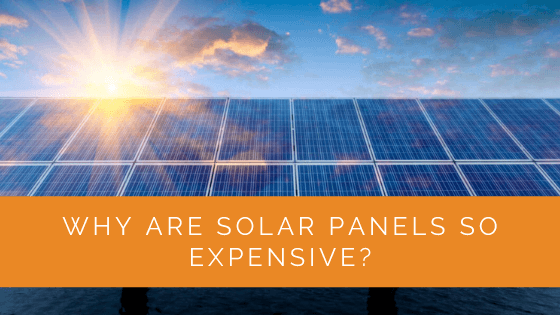The strain on traditional energy sources is massive. So, there is a steady shift to possible alternatives.
Solar energy is one such potential source. Most people think about installing a household solar system. However, the price quote changes their decision.
Unfortunately, they end up neglecting the long-term benefits of solar panels. If you face such a dilemma, we are here to help.
This guide explains why solar panels are expensive. Further, we have the perfect reasons that can change your mind on this topic.
So, without further ado, let us understand the pricing details of solar panels.
Contents
- 1 Key Takeaways
- 2 How Much Do Solar Panels Usually Cost?
- 3 Why Are Solar Panels Expensive?
- 4 Are Solar Panels Beneficial?
- 5 Can You Sell Extra Solar Power to the Grid?
- 6 How to Reduce the Cost of Solar Panels?
- 7 Frequently Asked Questions
- 8 Case Study: Recent Solar Panel Installation
- 9 Expert Insights From Our Solar Panel Installers About The Cost of Solar Panels
- 10 Experience Solar Excellence with Us!
- 11 Final Thoughts
Key Takeaways
- Solar panel costs vary due to individual power consumption needs, with an average installation budget of $15,000 to $25,000.
- The expense of solar panels is driven by factors such as costly raw materials, auxiliary components, labor costs, and permitting requirements.
- Solar panels offer long-term benefits, including reduced electricity bills, a payback period of around 8 years, federal tax credits, and environmental sustainability as a renewable energy source.
How Much Do Solar Panels Usually Cost?
Solar panel quotes differ for every household. Thus, you won’t find a rigid cost structure for this system.
The reason behind this dynamic price tag is simple. Every house has unique power consumption needs. Hence, professional solar companies calculate individual power requirements.
Consequently, they recommend the following:
- Type of solar panel
- Installation method
- The capacity of solar panels
- Additional material (if any)
So, you can expect solar panels to cost around $3.00/- per watt on average. Thus, most houses need a $15,000/- to $25,000/- budget for installing solar panels.
According to Home Advisor’s research, the panels cost around $2.00/- per watt. However, this price does not include installation charges.
Why Are Solar Panels Expensive?
The expense of solar panels depends on the hardware and miscellaneous costs. Let us understand the reasons for the same.
Costly Raw Material
Solar panels contain silicon. This semiconductor material undergoes intricate processing for final usage.
This processing includes extraction, purification, and manufacturing costs. So, the overall effort and expense to make solar panels are high.
Thus, the final selling price of these panels is heavy on your pocket.
Auxiliary Components
Simply installing solar panels does not supply electricity. You need other items to complete the overall setup.
Generally, solar panel installation includes the following:
- Battery
- Inverter
- Mounting setup
Hence, the total cost of solar panels increases due to the hardware. Depending on your power requirement, solar companies suggest relevant components.

Labor Costs
For installing a solar system, a skilled labor force proves paramount. Skilled laborers understand the challenges in installing solar panels.
For example, you might need to mount solar panels at the desired angle for maximum efficiency. In such cases, an experienced labor force becomes vital.
In addition, clearing vegetation, dust and barriers are some responsibilities of laborers. Thus, a skilled, experienced, and practical labor force adds to the overall cost of solar panel installation.
Solar System Permits
Another factor that increases the cost of solar panels is permits. Before installing solar panels, you must complete the necessary paperwork.
Generally, these permits require you to visit an enforcing agency. In addition, you need to contact a local utility provider too.
So, regulations make this process time-consuming and costly. Moreover, studying a solar permitting guidebook helps in this process.
Still, it is better to know state-level solar permit laws for more clarity.
Are Solar Panels Beneficial?
All that high initial investment pays you in the long run. You must muster the courage to debunk myths and invest in a dependable solar panel system.
In comparison with the upfront cost, solar panels provide crucial benefits.
Solar Panels: A Long-Term Investment
The most significant advantage of solar panels is the reduction in electricity bills. Solar panels use the energy of the sun. Importantly, this energy is free of cost.
Hence, you do not need to rely on artificial sources of energy. You can expect a typical payback period of around eight years from solar panels.
This payback period is not a bad bargain considering solar panels have a lifespan of 25 years.
What is the Payback Period?
The payback period refers to the time required to recover the original cost of investment. For solar panels, you can calculate your payback period.
Notably, this period will differ for every customer.
Payback period = Total initial investment/Annual benefit
Let us explain this concept with an easy example.
Consider you spent an overall amount of $20,000 for solar panel installation. This amount is your total initial investment.
Next, you need to calculate the cash that you save each year after installing solar panels. For instance, consider you spent $2,500/- a year without solar panels.
Note the total electricity bill after installing solar panels. Typically, if your solar panels generate sufficient energy, the bill can range around $120/-. Thus, you save $2,380/- annually.
So, the payback period = 20000/2380 = 8.4 years
Federal Tax Credit Advantage
Another massive advantage of going solar is the 30% federal tax credit on the initial investment. However, you need to stay updated with the federal tax credit calculations.
If we apply this benefit to our above example, this is what you get:
30% on the initial investment of $20,000/- implies a saving of $6,200. Thus, your total initial investment is just $14,000.
Overall, the example provides a clear idea of the benefits of installing solar panels.
Solar Panels are the Future
Solar energy is renewable. In addition, fossil fuels are depleting at a brisk pace. Further, there is an ever-growing emphasis on reducing our carbon footprint.
All these factors make solar energy an essential source for the next decades. Hence, if you invest in solar panels now, you can reap the benefits.
Significantly, governments may reduce subsidies on solar panels in the future. So, it is beneficial to make good use of solar panels right now.

Can You Sell Extra Solar Power to the Grid?
Residential solar systems can produce more energy than our daily needs. In this case, you can benefit from the concept of net metering.
Solar system owners can use net metering to send excess electricity back to the power grid. Consequently, consumers receive monthly credits.
These monthly credits reduce your energy bill further. However, net metering depends on:
- Your state energy laws
- Your utility company policy
- Connection with a local power grid
If you meet the above conditions, solar panels can become more efficient tools. Still, you won’t save a considerable amount on electricity bills with this approach.
How to Reduce the Cost of Solar Panels?
Solar panel installation is expensive. But, with the right tricks, you can save some bucks. Here are some handy tips that can reduce the installation cost of solar panels.
Compare Installation Charges
The price of solar panels remains the same wherever you go. Also, other auxiliary equipment has standard costs irrespective of location.
The key here is the installation charges. Different solar companies have custom installation rates.
For example, turnkey solar installers have high overhead costs. Hence, they charge more.
So, it helps to explore local solar installers too. You can compare the quotes and save money for installing solar panels.
Avail Government Subsidies
The Federal Tax Credit law and related schemes reduce your overall budget considerably. So, it is a good idea to avail such benefits.
Both homeowners and commercial customers can benefit from this tax credit. Hence, you can get a refund for the initial cost of installing solar panels.
This refund helps you save a decent amount of money to install solar panels. Still, it is essential to note that the 30% tax credit applies to your income tax.
Build Gradually
If you are skeptical about solar panels, start small. You can install a mini-solar system and notice the difference.
This approach will allow you to spend a small amount of money. Hence, you won’t face any stress later. Also, you can increase the number of solar panels as per requirement.
Still, it is vital to think about expansion. After all, solar panels can provide enormous benefits in a significant grid layout.
Choose the Right Panel Material
Higher the efficiency, the greater the cost! So, solar panels with high efficiency are expensive. In most cases, house owners do not need equipment with the highest efficiency.
For small residences, low to medium efficiency panels prove enough. So, it is convenient to buy the right solar panel.
Subsequently, you need some knowledge and a reliable solar contractor for this purpose.
Simplify Your Landscape
You can clear the bushes or tree branches for a hassle-free solar installation. Some customers rely on solar contractor laborers for this purpose.
However, a simple DIY landscape clearing helps you save labor costs. Thus, you can expect a decrease in the final bill.
Still, this trick depends on the need and scale of landscape cleansing. So, always assess these minor details before installing solar panels.

Frequently Asked Questions
Here are some FAQs related to this topic. You can benefit from these common customer queries.
Can we run an air conditioner on solar power?
Yes, we can run ACs with the help of solar panels. Importantly, you need the support of an inverter or battery for this purpose.
The off-grid solar system can run an AC without electricity. This system makes use of stored power in the battery.
How many solar panels are required for running a refrigerator?
Typically, you need four solar panels to power a standard refrigerator. Approximately, you need to generate over 100 kWh of electricity for this purpose.
All solar companies provide a consumption chart for users. This chart gives a clear idea of all details regarding solar panels and electricity.
Which energy form is the cheapest?
The International Energy Agency (IEA) reports solar as the cheapest form of energy. Notably, solar power is 20 – 50 % cheaper than expected.
The report and its findings give a clear green signal for people to invest in solar power. Hence, for the long term, with better energy schemes, solar can be a household system in most nations.
Which nation has the cleanest electricity?
Germany uses around 13% renewable energy sources. Hence, it tops the list of countries with clean electricity resources.
Nevertheless, countries like the USA and Australia will climb up the ladder gradually. There are intriguing energy schemes that increase the usage of renewable energy sources.
Case Study: Recent Solar Panel Installation
Background
James and Laura Whitaker, residents of Hartford, Connecticut, decided to install solar panels to reduce their electricity bills and contribute to environmental sustainability. Concerned about the high upfront costs, they sought expert advice from Solar Panels Network USA to understand the financial implications and long-term benefits of solar energy.
Installation and Costs
After a comprehensive assessment, a 6kW solar panel system was recommended for the Whitaker’s home. The breakdown of costs includes:
- Solar Panels: $12,000
- Installation: $5,000
- Permits and Inspection: $1,200
- Inverter and Battery: $2,800
- Total Estimated Cost: $21,000
Financial Incentives:
- Federal Tax Credit (ITC): $6,300
- State Rebates: $1,500
- Adjusted Total Cost: $13,200
Installation Process
The installation process, completed in four days, involved roof preparation, panel mounting, wiring, and a final inspection. The Whitakers chose high-efficiency Tier 1 solar panels for optimal performance and durability.
Results and Benefits
Since the installation, the Whitakers’ solar panel system has generated an average of 750 kWh per month, significantly reducing their monthly electricity bill from $180 to approximately $25. They also benefited from Connecticut’s net metering policy, which allowed them to sell excess electricity back to the grid.
Environmental and Financial Impact:
- Annual Savings: $1,860
- Payback Period: ~7 years
- Reduced CO2 Emissions: ~3.5 metric tons annually
- Increased Home Value
Conclusion
The Whitakers’ experience demonstrates the significant benefits of investing in solar energy, even with the initial high costs. The combination of federal tax credits and state rebates made the investment more manageable, highlighting the importance of utilizing available financial incentives. By choosing high-quality panels and leveraging expert installation services from Solar Panels Network USA, they achieved substantial long-term savings and contributed positively to environmental sustainability. Hartford’s supportive policies and ample sunlight make it an ideal location for solar energy projects, underscoring the value of professional guidance in optimizing solar energy solutions.
Expert Insights From Our Solar Panel Installers About The Cost of Solar Panels
The high cost of solar panels is primarily due to the expensive raw materials, like silicon, and the intricate processing involved. However, investing in high-quality panels ensures durability and efficiency, making it a worthwhile investment in the long run.
Labor costs play a significant role in the overall expense of solar panel installation. Skilled labor is essential to ensure the panels are installed correctly for maximum efficiency, which can justify the higher initial costs.
Government permits and regulatory processes also add to the cost. Despite these expenses, the long-term savings on electricity bills and environmental benefits far outweigh the initial investment.
Experience Solar Excellence with Us!
Trust in Solar Panels Network USA, where our seasoned experts deliver top-quality solar solutions for homes and businesses nationwide. With a legacy of countless successful installations and a commitment to sustainable energy, we’re your reliable partner in the solar journey. Ready for a brighter, eco-friendly future? Call us now at (855) 427-0058 and harness the power of the sun!
Final Thoughts
Solar panels have high initial costs mainly due to a combination of various factors. The overall installment cost increases due to labor and practical mounting process.
However, solar panels are an excellent long-term investment. Importantly, you can save a considerable amount of electricity bills every year. So, be sure to follow the tips in this guide.
These tips will undoubtedly help reduce installation costs. Also, now is the right time to install a solar system due to the federal tax credit.
About the Author
Solar Panels Network USA stands at the forefront of solar energy solutions, driven by a team of seasoned solar engineers and energy consultants. With over decades of experience in delivering high-quality solar installations and maintenance, we are committed to promoting sustainable energy through customer-centric, tailored solutions. Our articles reflect this commitment, crafted collaboratively by experts to provide accurate, up-to-date insights into solar technology, ensuring our readers are well-informed and empowered in their solar energy decisions.

